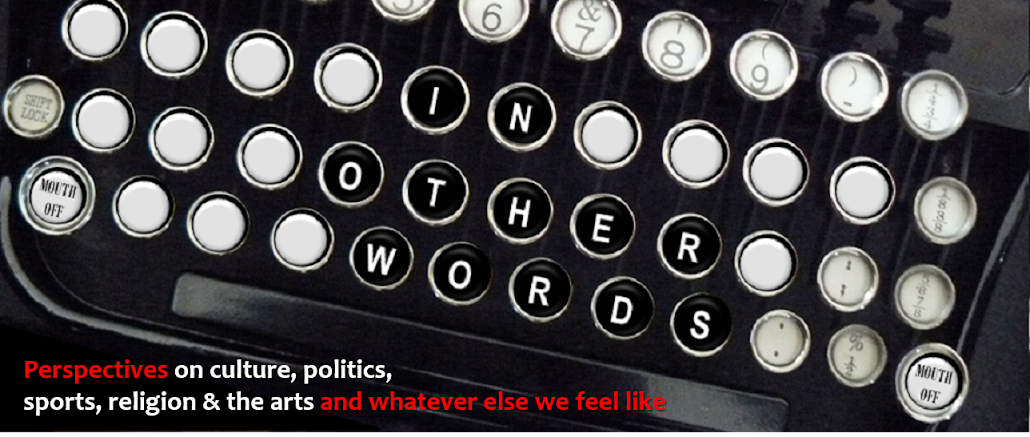 O
One of the lessons often lost in the world of social media is to be careful with words, because they mean things. This is particularly important when it comes to words such as right and wrong, good and evil, and the like. They’re pejorative words; a lawyer might call them “leading,” in that they’re designed to provoke a certain type of response, positive or negative.
The word “bad” is one of the worst kinds of pejoratives. It is a judgmental word, going beyond actions and straight to the heart of a person’s soul. It imputes values not only to deeds, but to motives as well. A man who does something wrong or foolish or misguided is not necessarily a bad man. We’re reminded that we’re to judge the act, not the actor.
Robert Bork, who died yesterday at the age of 85, was a brilliant and accomplished jurist who was done in, professionally, by bad men. More specific than that: he was done in by men such as Edward Kennedy and Joseph Biden.
I don’t hesitate to call them bad men, because they knew that the things they said about Robert Bork were not true. They were outright lies, or they were words twisted out of context, or they were pejoratives of their own that were designed to put Bork in the worst possible light. They sought to keep Bork off the Supreme Court, not because he wasn’t qualified, not because he wouldn’t uphold the law, but because they disagreed with him, they feared the effect he would have on the policies they favored, and they resolved to do whatever it took to deny him confirmation. They weren’t acting out of ignorance – they knew what they were doing. They weren’t acting on good intentions – they knew of their deceptions. And they went ahead with them.
In 1986, Biden was quoted in the Philadelphia Enquirer thusly: “Say the administration sends up Bork and after our investigation he looks a lot like another Scalia, I’d have to vote for him and if the groups tear me apart, that’s the medicine I’ll have to take, I’m not Teddy Kennedy.” As Bork pointed out in
The Tempting of America, “My record was in fact almost identical to Scalia’s. . . .”Biden knew this, but it wasn’t convenient for him.* Having boxed himself into a corner (not the first time, nor the last), he chose to willingly deny the facts, because to do so suited his purpose.
*
If I'm wrong - if, in fact, Biden really is
that clueless that often, then - well, in the words of wrestling announcer Nigel McGuiness, "Everyone has a right to be stupid, but let's be honest, he's kind of abusing the privilege."
And as for Edward Kennedy – well, the less said about him, the better. ‘Tis not good to speak ill of the dead, after all. But
Jim Gereghty, calling Kennedy “one of the most despicable men ever to hold high public office in the United States” (and to that I’d only add – why stop there? Surely few people of any prominence have been as despicable as Kennedy), referred to Kennedy’s “calumnious lies designed not simply to prevent Judge Bork from being appointed to the Supreme Court but to soil his character irretrievably.” For example, in Robert Bork’s America, “which women would be forced into back-alley abortions, blacks would sit at segregated lunch counters,” and so on. Kennedy knew these were lies – he would have had to be not only despicable but impossibly stupid otherwise – but he said them anyway, because they suited his purpose.
Joe Nocera, himself a political liberal,
provides on the op-ed page of
The New York Times a brutally honest assessment of the left’s tactics, asserting that “many of the liberals fighting the nomination also knew they were unfair. That same Advocacy Institute [a liberal think-tank] memo noted that, ‘Like it or not, Bork falls (perhaps barely) at the borderline of respectability.’ It didn’t matter. He had to be portrayed ‘as an extreme ideological activist.’ The ends were used to justify some truly despicable means.”
The fact that Kennedy and Biden and their like did not soil Bork’s character irretrievably – that Robert Bork remained a distinguished and respected man – speaks not only of his character, but of theirs. They may have succeeded in keeping Bork off the Supreme Court, but they were not able to silence him, nor were they able to take away the respect that so many had for him.
Honest assessments of Robert Bork speak of his warmth and humanity, his sense of humor, his loyalty, and his brilliance. He would have served the Supreme Court, and the nation, with distinction and honor. That he was derailed primarily by two bad men, who had (or, in Biden’s case, have) neither distinction nor honor speaks less of Bork than it does of us as a people, for continuing to raise people like them to positions of authority. Corruption, as Bishop Sheen once pointed out, rises, like the bubbles in a glass of beer, from the bottom.
◙





